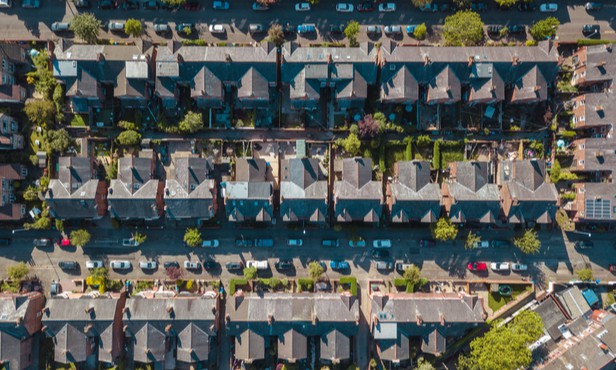As a result of the increase, the average property in the UK is now priced at £253,243.

House prices have increased by 7.6% in the year to November, according to the Halifax House Price Index.
On a monthly basis, house prices have risen by 1.2% between October and November.
As a result of the increase, the average property in the UK is now priced at £253,243.
Furthermore, average prices rose by 3.8% when comparing June to August and September to November.
Russell Galley, managing director of Halifax, said: “House prices rose by more than 1% in November, adding almost £3,000 to the cost of a typical UK home.
“At just over £253,000, the average property price has risen by more than £15,000 since June.
“In percentage terms, that equates to 6.5% - the strongest five-monthly gain since 2004.
“With mortgage approvals at a 13-year high, the current market continues to be shaped by a desire for more space, the move from urban to rural locations and indications of a trend for more home working in the future.
“And while industry data shows agreed sales and new instructions to sell fell to their lowest level in the past five months, both remain at historically high levels and well above seasonal norms.
“As the March deadline for the stamp duty holiday approaches, properties sold to home-movers recorded a much higher rate of annual house price inflation (+7.9%) than first-time buyers (+5.8%).
“It is interesting to note that the stamp duty saving of £2,500 on a home costing £250,000 is now far outweighed by the average increase in property prices since July.
“The housing market has been much more resilient than many predicted at the outset of the pandemic, and indeed many households remain confident about further price growth next year.
“However, the economic environment continues to look challenging.
“With unemployment predicted to peak around the middle of next year, and the UK’s economy not expected to fully recover the ground lost over 2020 for a number of years, a slowdown in housing market activity is likely over the next 12 months.”
Guy Gittins, managing director at Chestertons, added: “The second lockdown seemed to have very little negative impact on activity levels and even in the traditionally quieter month ofNovember, we were tracking well above any point in the previous three years.
“Part of this was driven by the incentive of the stamp duty saving, but we believe the main driver is that people just want to move as quickly as possible while conditions are favourable.
“We also noticed an extra wave of new buyers entering the market when a vaccine was announced.”
“We seem to be in the very unusual position of supply actually meeting demand and the large number of buyers coming to the market are being met by an almost equally large increase in properties coming up for sale.
“This is tempering any major price movements and values are generally remaining relatively steady across London.”
David Westgate, group chief executive at Andrews Property Group, said: “House prices continue to rise but the market will have its work cut out in 2021 as the economic impact of the pandemic and potentially Brexit kicks in.
"The stamp duty holiday ignited already strong post-lockdown demand and this, coupled with the desire of many people to relocate away from major cities in search of outdoor space, has driven prices higher.
“House price growth will almost certainlymoderate in the first quarter and values will come under pressure if unemployment starts to rise sharply as expected.
"The number of major high street firms collapsing suggests house prices are in for a tough 2021.
"At lower loan to values, we’re not expecting the market to grind to a halt but for first timebuyers and anyone with a smaller deposit it's going to be challenging next year."



